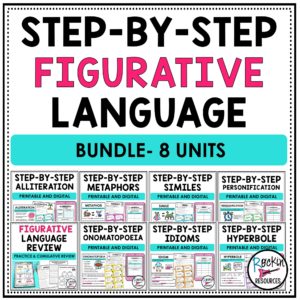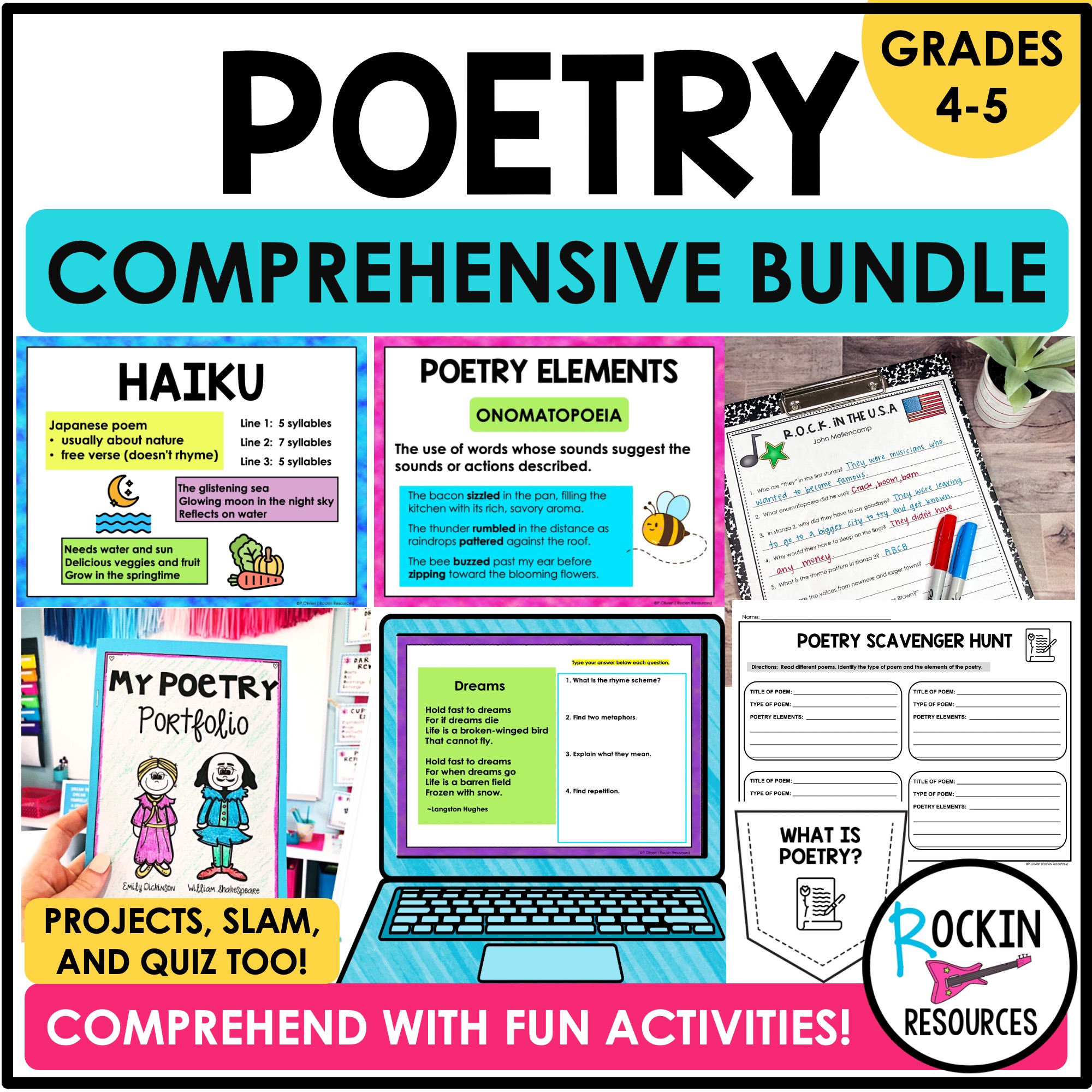Help students learn all about ONOMATOPOEIA through this step-by-step method. This standard-based FIGURATIVE LANGUAGE unit will give your students the tools they need to understand onomatopoeia. Introduce the lesson using the anchor chart and tons of examples I provide from ads, lyrics, and suggested mentor text list. Then students take notes, practice and apply using the steps and activities. Depending on your group, you may want to differentiate! (See explanation below.) This resource is available in PDF, PowerPoint, and GOOGLE SLIDES.
WHAT IS INCLUDED?
1. ANCHOR CHART: Introduce Onomatopoeia by using the anchor chart. Have a discussion: What is onomatopoeia? (teacher notes and examples included)
2. MENTOR TEXT: Use mentor text to point out onomatopoeia. There is a suggested list. If you have several books, place them in groups and have students find the onomatopoeia. (See the graphic organizer)
3. SLOGAN AND LYRICS ACTIVITY: Did you know that onomatopoeia is found in ad slogans and song lyrics? SEE the GRAPHIC ORGANIZER that can be used for research. There is an Onomatopoeia Slogan Graphic Organizer to be used at the end of the unit and no worries, I provide a list of catchy onomatopoeia found in advertising and songs!
4. PAGES TO TAKE NOTES: Printable: Choose one of the differentiated interactive notebook pages or use the mini-anchor chart for the student notebooks. GOOGLE AND PPT: Fill in the boxes.
5. ILLUSTRATIONS: Illustrate onomatopoeia in each section.
6. PRACTICE PAGES: The practice is set up in a step-by-step process with #1 practice being the easiest. Use all three practices OR DIFFERENTIATE: You may opt to use Practice 1 for students who need less of a challenge, Practice 2 for students on level, and Practice 3 for students who need a challenge.
PRACTICE 1- STEPS 1-4 – IDENTIFY / UNDERSTAND
PRACTICE 2- STEPS 1-5 – IDENTIFY / UNDERSTAND / APPLY
PRACTICE 3- STEPS 1-6 – IDENTIFY / UNDERSTAND / APPLY / APPLY MORE
7. TASK CARDS: There is a PDF printable version. These can be placed in groups or centers. A GOOGLE FORMS QUIZ is included for easy grading.
8. GRAPHIC ORGANIZERS: (About You / Slogan / Any topic) These can be used after Step 6 once students know how to apply.
9. ASSESSMENT: Assess the students’ knowledge. Ways to differentiate are included! GOOGLE AND POWERPOINT: If you don’t want students to have access to the quiz while practicing, cut and paste it into a separate file.
HOW ARE THE STEPS SET UP?
STEP 1: IDENTIFY- Underline the onomatopoeia.
STEP 2: IDENTIFY- Identify the phrase that has onomatopoeia.
STEP 3: IDENTIFY- Find the onomatopoeia in a story.
STEP 4: UNDERSTAND- Match the topics with the onomatopoeia.
STEP 5: APPLY- Write a sentence for the onomatopoeia.
STEP 6: APPLY- Write an onomatopoeia sentence for a specific topic.
Thank you for visiting my store!
PAM 🙂









